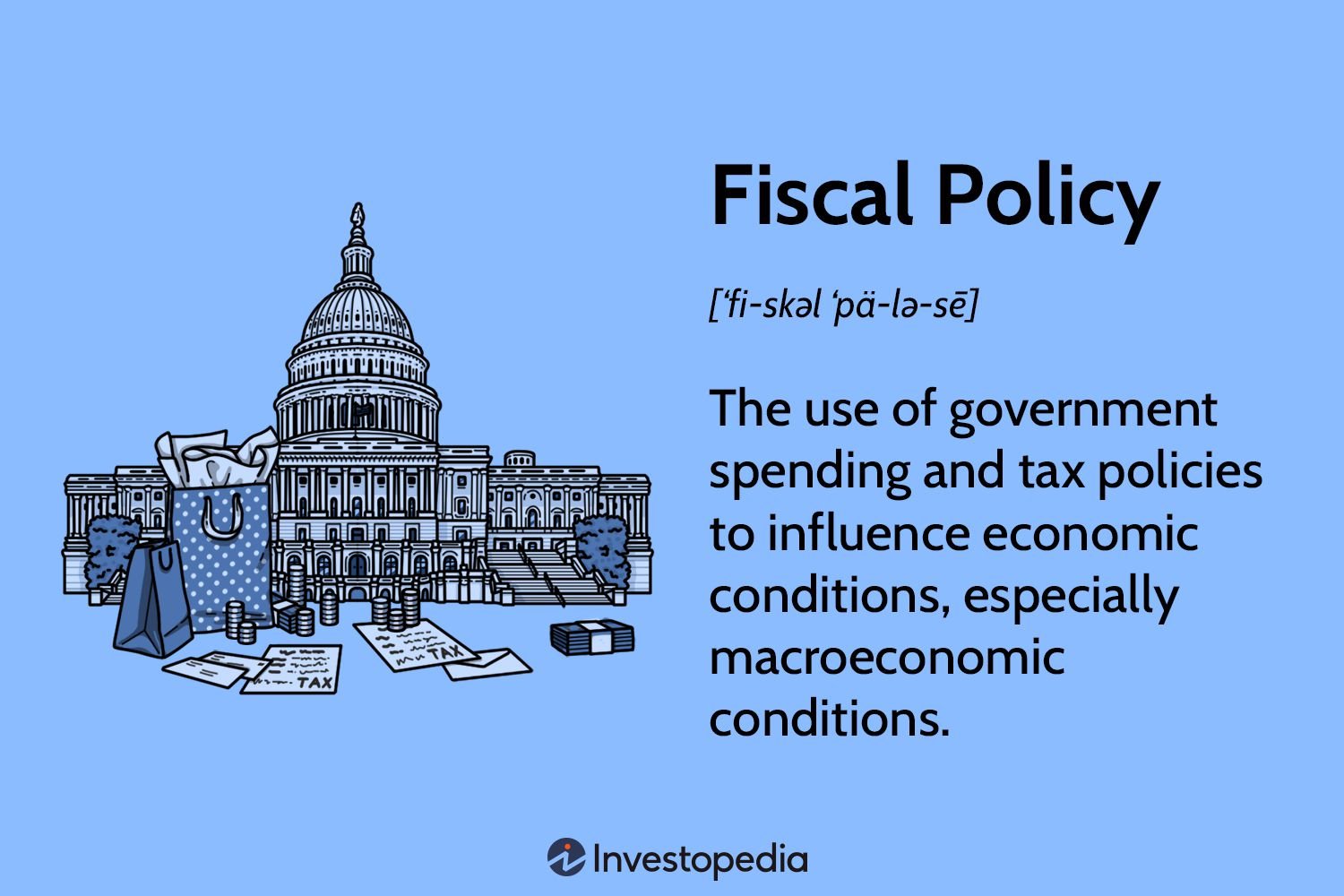Fiscal responsibility: What does it really mean? It’s a question that often leaves people puzzled, searching for answers and clarity. Well, look no further! In this article, we will delve into the meaning of fiscal responsibility and how it impacts our personal and financial lives. Fiscal responsibility, put simply, is about managing our money and resources in a responsible and prudent manner. It involves making wise financial decisions, budgeting effectively, and living within our means. So, if you’ve ever wondered what is the meaning of fiscal responsibility and why it matters, keep reading to find out.
What Is the Meaning of Fiscal Responsibility?
When it comes to managing finances, fiscal responsibility is a crucial aspect that individuals, businesses, and governments must consider. It refers to the practice of making sound financial decisions, balancing income and expenditure, and effectively managing debt. Fiscal responsibility involves being accountable for one’s financial actions, ensuring long-term stability and sustainability. In this article, we will explore the meaning of fiscal responsibility in detail, examining its significance and various subtopics.
Why Is Fiscal Responsibility Important?
Fiscal responsibility plays a crucial role in achieving financial well-being and ensuring economic stability. Here are some key reasons why it is important:
1. Long-term Financial Stability: Practicing fiscal responsibility helps individuals and organizations maintain stable finances over the long term. By living within their means and managing debt wisely, individuals can avoid financial crises and build a solid foundation for their future.
2. Economic Growth: Governments that prioritize fiscal responsibility contribute to a healthy and thriving economy. By effectively managing public funds, reducing debt burdens, and creating favorable investment climates, they promote economic growth and job creation.
3. Debt Management: Fiscal responsibility involves managing debt effectively. By avoiding excessive borrowing and developing strategies to pay off existing debts, individuals and organizations can minimize financial stress and maintain a good credit score.
4. Resource Allocation: Being fiscally responsible ensures that resources are allocated wisely. By prioritizing essential needs, investing in areas that yield long-term benefits, and avoiding wasteful spending, individuals and organizations can optimize resource utilization.
Principles of Fiscal Responsibility
To understand the meaning of fiscal responsibility better, it is essential to explore its underlying principles. Here are some key principles that guide fiscal responsibility:
1. Budgeting: Creating and following a budget is fundamental to fiscal responsibility. By planning income and expenses, individuals and organizations can make informed financial decisions, avoid overspending, and save for future needs.
2. Transparency: Transparency is crucial in maintaining fiscal responsibility, especially for governments and organizations managing public funds. By providing clear and accurate financial reports, they demonstrate accountability and ensure public trust.
3. Avoiding Deficit Spending: Fiscal responsibility emphasizes avoiding excessive borrowing and deficit spending. Governments, businesses, and individuals should strive to balance income and expenses, aiming for surpluses to reduce debt and build reserves.
4. Saving and Investing: Saving and investing are vital components of fiscal responsibility. By setting aside money for emergencies, retirement, and future goals, individuals secure their financial well-being. Organizations also invest in productive assets to generate long-term returns.
5. Debt Management: Effectively managing debt is essential for fiscal responsibility. This involves understanding the terms and conditions of loans, making regular payments, and avoiding unnecessary debt.
Individual Fiscal Responsibility
Individuals must embrace fiscal responsibility to achieve financial independence and secure their future. Here are some key aspects of individual fiscal responsibility:
1. Living within Means: Individuals should spend less than they earn to avoid accumulating debt and financial strain. This involves careful budgeting, distinguishing between needs and wants, and making conscious financial decisions.
2. Saving and Investing: Setting aside a portion of income for savings and investments is crucial for long-term financial security. By establishing an emergency fund and exploring investment opportunities, individuals can build wealth and meet future financial goals.
3. Debt Management: Individuals should manage debt responsibly, paying bills on time, and avoiding unnecessary borrowing. Developing strategies to reduce debt, such as debt consolidation or negotiation, can help individuals regain control of their finances.
Government Fiscal Responsibility
Governments play a significant role in fiscal responsibility, as they manage public funds and make important financial decisions. Key elements of government fiscal responsibility include:
1. Budget Planning: Governments must create and follow budgets that align with the needs of the population. This involves setting spending priorities, allocating resources efficiently, and ensuring transparency in the budgeting process.
2. Public Debt Management: Governments often need to borrow money to fund public projects and services. However, they must manage public debt responsibly by minimizing borrowing costs, ensuring debt sustainability, and avoiding excessive reliance on borrowed funds.
3. Accountability and Transparency: Governments should be accountable to the public by providing transparent financial reports, ensuring responsible use of public funds, and involving citizens in decision-making processes.
Business Fiscal Responsibility
Businesses also have a responsibility to practice fiscal responsibility. Here are key considerations for businesses:
1. Financial Planning: Creating a comprehensive financial plan helps businesses manage cash flow, make informed investment decisions, and ensure long-term viability. This includes budgeting, forecasting, and monitoring financial performance.
2. Profitability and Sustainability: Businesses should seek profitability while maintaining sustainability. This involves pricing products or services appropriately, controlling costs, and investing in growth opportunities.
3. Debt Management: Businesses must manage debt wisely, considering interest rates, payment terms, and the impact on cash flow. By avoiding excessive debt and making timely payments, businesses can maintain good financial health.
The Role of Education in Promoting Fiscal Responsibility
Promoting fiscal responsibility starts with education. By equipping individuals with financial literacy and teaching them about responsible money management, we can cultivate a society that prioritizes fiscal responsibility. Here are some key aspects of financial education:
1. Personal Finance: Educating individuals about personal finance topics, such as budgeting, saving, investing, and debt management, lays the foundation for fiscal responsibility.
2. Economic Literacy: Teaching economic principles and concepts helps individuals and future decision-makers understand the impact of fiscal responsibility on the broader economy.
3. Entrepreneurship Education: Encouraging entrepreneurship and providing education on starting and managing a business promotes fiscal responsibility among aspiring entrepreneurs.
In conclusion, fiscal responsibility encompasses making sound financial decisions, managing debts effectively, and living within our means. Whether at an individual, government, or business level, practicing fiscal responsibility is crucial for long-term financial well-being and economic stability. By embracing principles such as budgeting, transparency, and debt management, we can build a sustainable future and secure our financial independence.
Teaching fiscal responsibility
Frequently Asked Questions
Frequently Asked Questions (FAQs)
What is the meaning of fiscal responsibility?
Fiscal responsibility refers to the act of managing finances and resources in a responsible and sustainable manner. It involves making informed and prudent decisions to ensure that government or organizational spending aligns with available revenue and long-term financial stability.
Why is fiscal responsibility important?
Fiscal responsibility is important to maintain the economic well-being of a nation or organization. It helps prevent excessive debt, inflation, and economic instability. By practicing fiscal responsibility, governments and organizations can ensure a sustainable financial future and provide stability and confidence to investors and citizens.
How does fiscal responsibility impact individuals?
Fiscal responsibility can have a direct impact on individuals’ lives. It influences taxation rates, government spending on public services, and economic growth. When governments or organizations maintain fiscal discipline, individuals may experience increased job opportunities, stable prices, and a better quality of life.
What are some key principles of fiscal responsibility?
Some key principles of fiscal responsibility include balanced budgeting, responsible borrowing, efficient resource allocation, transparent financial reporting, and long-term financial planning. These principles aim to ensure that spending is sustainable, revenue is maximized, and financial decisions are made with the best interests of the economy and stakeholders in mind.
How do governments promote fiscal responsibility?
Governments can promote fiscal responsibility through various measures. These may include implementing fiscal rules and regulations, conducting regular audits, enacting transparent budget processes, promoting accountability, and engaging in prudent debt management. Additionally, public education and awareness campaigns can help citizens understand the importance of fiscal responsibility.
What are some examples of fiscal responsibility in action?
Examples of fiscal responsibility in action include governments maintaining a balanced budget, avoiding excessive borrowing, investing in infrastructure and public services without compromising long-term financial stability, and implementing effective taxation policies that promote economic growth while ensuring fairness.
How does fiscal responsibility differ from fiscal conservatism?
Fiscal responsibility focuses on managing finances responsibly and sustainably, taking into account long-term goals and economic stability. On the other hand, fiscal conservatism is an ideological stance characterized by advocating for limited government intervention and lower levels of taxation and public spending.
What are the consequences of ignoring fiscal responsibility?
Ignoring fiscal responsibility can lead to several negative consequences. These may include increased public debt, reduced investor confidence, inflation, economic instability, and the need for harsh austerity measures in the future. It can also hinder long-term economic growth, limit public investments, and hinder the ability to respond to unforeseen financial challenges.
Final Thoughts
Fiscal responsibility refers to the ability to manage and allocate financial resources in a prudent and accountable manner. It involves making informed decisions to ensure the sustainability and stability of the economy, while also addressing the needs and priorities of society. Understanding the meaning of fiscal responsibility is crucial as it impacts public finances, government policies, and the overall well-being of individuals and businesses. By practicing fiscal responsibility, governments can maintain fiscal discipline, avoid excessive debt, and promote long-term economic growth. It is imperative for individuals and policymakers alike to prioritize fiscal responsibility in order to achieve financial stability and sustainable development.



